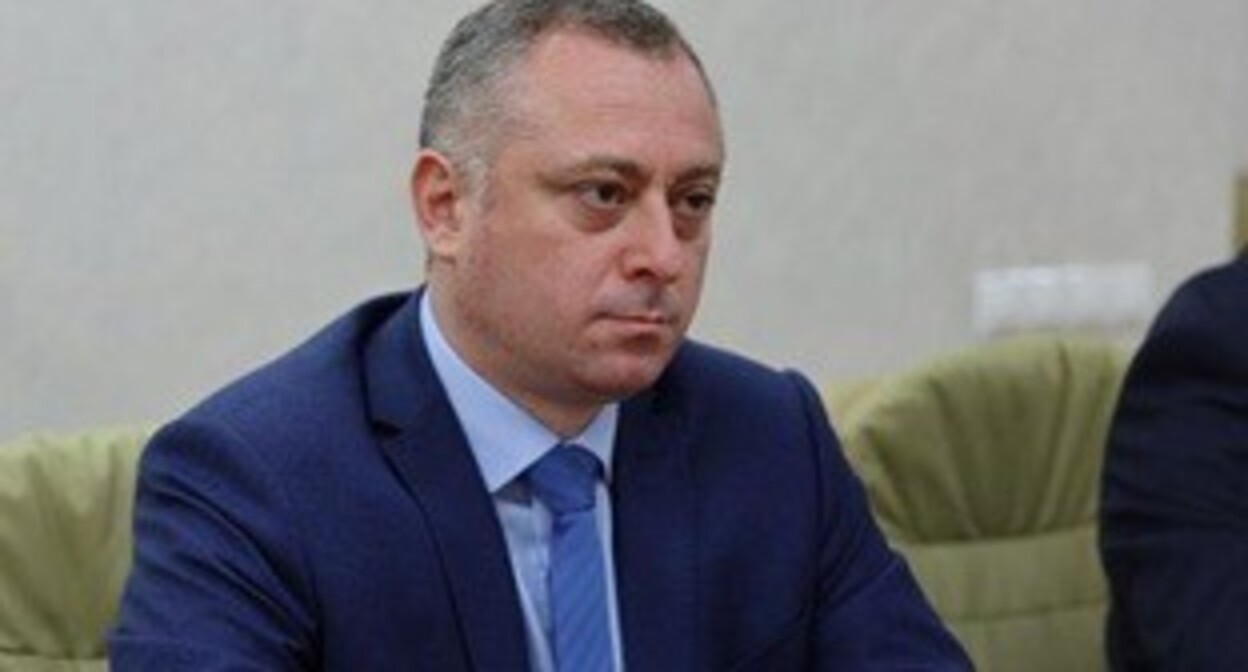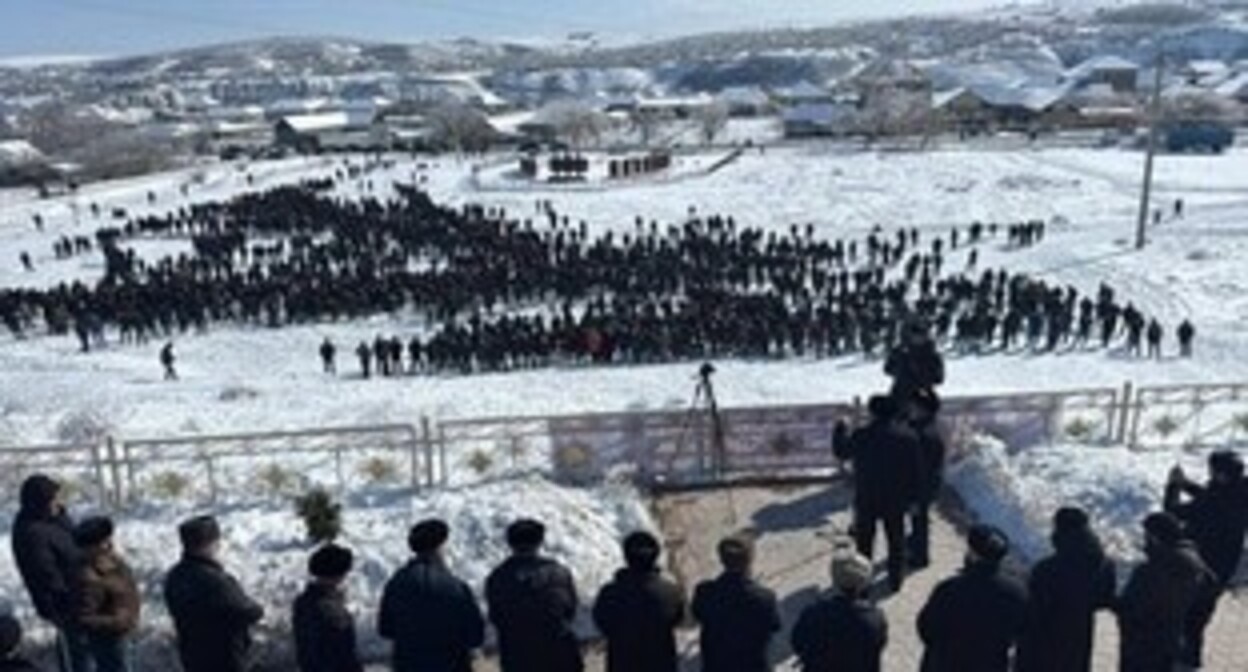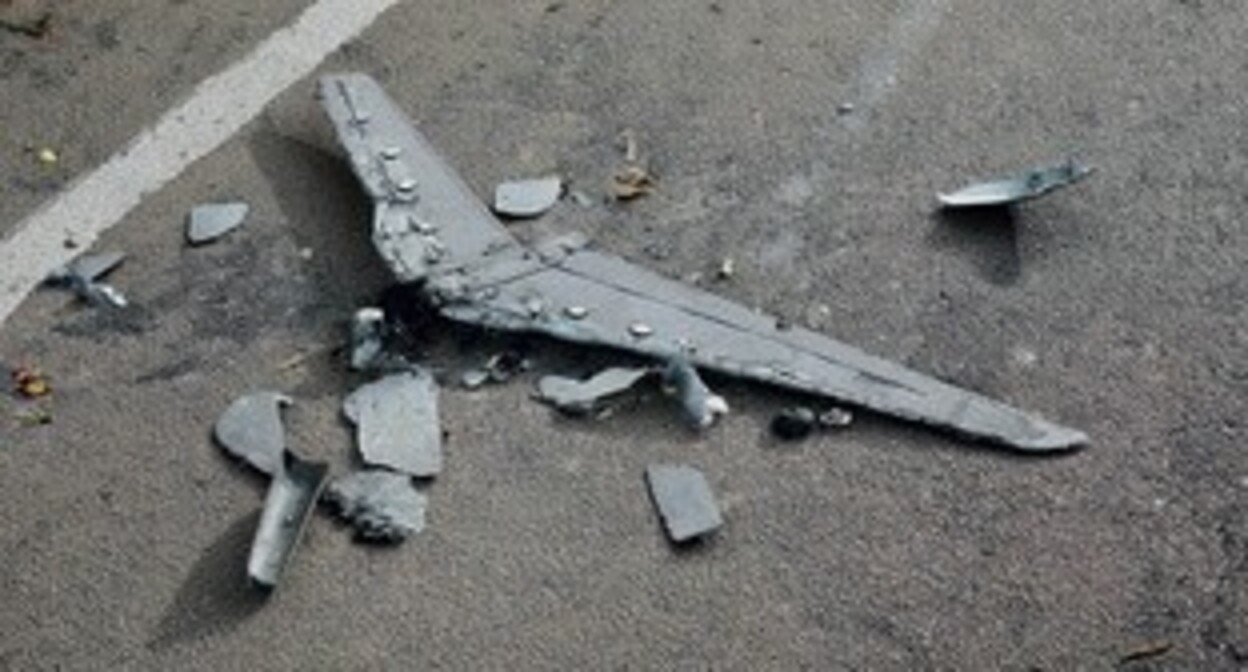Week in the Caucasus: review of main events of June 12-18, 2023
Disappearance of Adam Delimkhanov and contract between “Akhmat” units and Russian Ministry of Defence, persecution of pacifists and activists in Southern Russia, blockade of Nagorno-Karabakh, Zarema Musaeva’s case, and official data on the natives of Southern Russia who perished in Ukraine, – see the review of these and other events in the Caucasus during the week of June 12-18, 2023, prepared by the “Caucasian Knot”.
Disappearance of Adam Delimkhanov and contract between “Akhmat” units and Russian Ministry of Defence
On June 12, a contract was signed “determining the activities of the “Akhmat” volunteer units in the special military operation zone, as well as the extension of social protection and support measures established by the state to volunteers and their families.”
On the same day, Adam Delimkhanov, a Russian State Duma member from Chechnya, met Vyacheslav Gladkov, Governor of the Belgorod Region, and officials from the Russian Ministry of Defence (MoD) to discuss the transfer of some of the Ramzan Kadyrov’s units in order to prevent sabotage attacks in the border areas.
A source in the Russian State Duma reported that Adam Delimkhanov was wounded. In his turn, Ramzan Kadyrov announced that Adam Delimkhanov did not get in touch and requested the Ukrainian intelligence “to provide information which place was attacked” so that the leader of Chechnya “could find” his adviser. Later, Ramzan Kadyrov stated that Adam Delimkhanov was not wounded. The leader of Chechnya called his message about the impossibility of contacting Adam Delimkhanov an attempt to play along with authors of the fake news about his advisor’s wounding.
Persecution of pacifists and activists in Southern Russia
In Southern Russia, courts continued to fine residents of the regions for criticizing the special military operation or supporting Ukraine. On June 18, it became known that Sofia Burger, a resident of Krasnodar, was repeatedly fined for her post on the social media. According to the court’s version, Sofia Burger published two posts on the social media. One of them had a children’s slide in blue and yellow colours accompanied by a Ukrainian song. Sofia Burger pleaded guilty and expressed remorse.
In Krasnodar, a court recognized a post on the social media of a flag with a slogan glorifying Ukraine as a demonstration of extremist symbols and arrested local resident Mikhail Lyakh for 15 days. The reason for the arrest was the man’s post on the social media with a flag of Ukraine accompanied with a slogan in support of Ukraine. A court also fined Andrei Yevtushenko, a resident of the Astrakhan Region, accused of discrediting the Russian Armed Forces because of posting a comment in an opposition channel on the social media, where Andrei Yevtushenko described his attitude to the military operations in Ukraine.
According to the ruling published on the official website of the Danilovsky District Court of the Volgograd Region, Svetlana Ternovaya posted on the “Odnoklassniki” social media outlet a video with the theses of opposition politician Alexei Navalny* about relations between Russia and Ukraine, “thus, Svetlana Ternovaya committed the public actions aimed at discrediting the use of the Armed Forces of Russia and its citizens.”
In Sochi, the police drew up a protocol on discrediting the Russian Armed Forces against local resident Vladislav Peregon. A similar protocol was drawn up against Natalia Beldieva, a resident of Pyatigorsk. In Kuban, law enforcers drew up a protocol against Vladimir Seredina, a resident of the Temryuk District.
Blockade of Nagorno-Karabakh
On June 15, Azerbaijani border guards banned three residents of Stepanakert with Armenian citizenship from entering Nagorno-Karabakh. Two women and a child had to return to Armenia. “Three cases have been recorded when residents of Artsakh are not allowed to go home. It is possible that there will be more such cases in the future,” noted Gegam Stepanyan, Ombudsman of Nagorno-Karabakh.
The Lachin Corridor had been blocked since December 12, 2022 by Azerbaijani picketers, who demanded from Russian peacekeepers to provide them with access to mining deposits for monitoring. On April 28, on the 138th day of the blockade, the Azerbaijani activists suspended their action, after which Azerbaijani law enforcers took control of the road. On April 23, an Azerbaijani checkpoint was installed at the entrance to the Lachin Corridor. After that, the International Committee of the Red Cross suspended the transportation of patients from Stepanakert to medical centres in Armenia and the delivery of humanitarian supplies to Nagorno-Karabakh. On May 17, the International Committee of the Red Cross (ICRC) resumed the transportation of humanitarian supplies along the Lachin Corridor. Stepanakert considers the new Azerbaijani checkpoint an integral part of the blockade of Nagorno-Karabakh.
On the same day, the information headquarters of the Nagorno-Karabakh’s government announced that Azerbaijan had banned all humanitarian passenger and cargo transportation along the Lachin Corridor. The Ministry for Public Health of the unrecognized republic announced the threat of a humanitarian catastrophe as a result of the lack of medicines. Schools, kindergartens, and other children’s institutions in Nagorno-Karabakh faced the threat of closure due to fuel and food shortages.
On June 18, the authorities of Nagorno-Karabakh tightened the system for allocating and selling petrol, providing medical care, and distributing food products due to restrictions on the traffic along the Lachin Corridor. There is a shortage of goods, residents of Stepanakert say.
Zarema Musaeva’s case
On June 15, the Akhmatovsky District Court of Grozny started the pleadings on Zarema Musaeva’s case. A public prosecutor requested the court to sentence the defendant to 5.5 years of imprisonment. According to the public prosecution, Zarema Musaeva’s guilt in fraud and attack on a law enforcer was confirmed by the testimonies of witnesses and by the expert examination data.
Zarema Musaeva pleaded not guilty and emphasized that she had not committed anything illegal.
On January 20, 2022, Chechen law enforcers took Zarema Musaeva, a spouse of former judge Saidi Yangulbaev, from an apartment in Nizhny Novgorod by force. In February, the woman complained about the deterioration of her health state in a SIZO (pre-trial prison). On June 5, Zarema Musaeva’s son Abubakar Yangulbaev reported that his mother had lost the ability to move without someone’s help. On June 10, it became known that Zarema Musaeva was refused hospital treatment.
According to advocates Alexander Nemov and Alexander Savin, the investigators and public prosecutors did not provide evidence of Zarema Musaeva’s guilt. The persecution of Zarema Musaeva is an exemplary reprisal for the activities of her sons and is designed to intimidate critics of the Chechen authorities, notes human rights defender Sergey Babinets.
Official data on natives of Southern Russia perished in Ukraine
The head of the Kotovsky District reported that mobilized Yevgeny Krivozhikhin perished in the special military operation in Ukraine. Since the beginning of the special military operation, the authorities and the law enforcement bodies reported about at least 2103 residents of Southern Russia perished in Ukraine, including 1127 residents of the North-Caucasian Federal District (NCFD) and 976 residents of the Southern Federal District (SFD).
In Dagestan, the authorities reported about 527 local residents perished in Ukraine, in the Rostov Region – 230, in North Ossetia – 186, in the Stavropol Territory – 157, in the Krasnodar Territory – 152, in the Astrakhan Region – 150, in Chechnya – 102, in Kabardino-Balkaria – 96, in Ingushetia – 38, in Adygea – 30, in Kalmykia – 24, and in Karachay-Cherkessia – 21.
*Alexei Navalny is a founder of the Anti-Corruption Foundation (known as FBK), an NCO that is included by the Russian Ministry of Justice (MoJ) into the register of NCOs performing functions of a foreign agent. The NCO is also recognized by a court as extremist and banned in the territory of Russia. Navalny’s offices are recognized as extremist organizations and banned in Russia. On January 25, the “Rosfinmonitoring” (the Russian Federal Agency for Financial Monitoring) added Alexei Navalny to the register of extremists and terrorists.
This article was originally published on the Russian page of 24/7 Internet agency ‘Caucasian Knot’ on June 19, 2023 at 08:58 am MSK. To access the full text of the article, click here.








![Tumso Abdurakhmanov. Screenshot from video posted by Abu-Saddam Shishani [LIVE] http://www.youtube.com/watch?v=mIR3s7AB0Uw Tumso Abdurakhmanov. Screenshot from video posted by Abu-Saddam Shishani [LIVE] http://www.youtube.com/watch?v=mIR3s7AB0Uw](/system/uploads/article_image/image/0001/18460/main_image_Tumso.jpg)